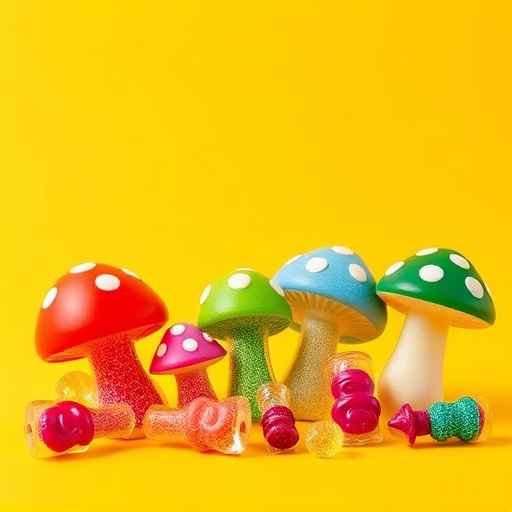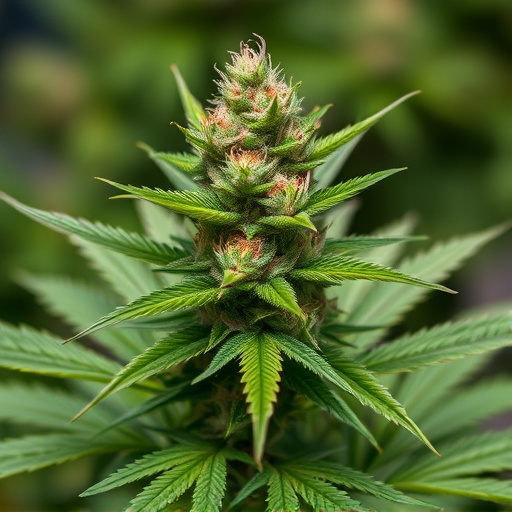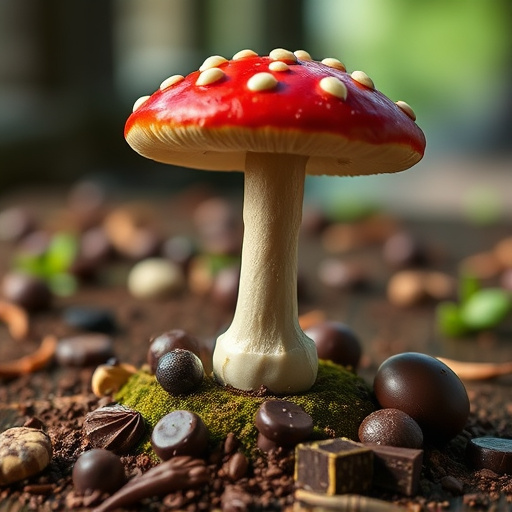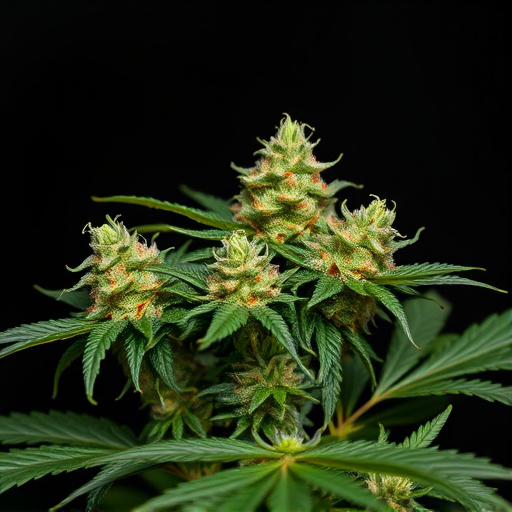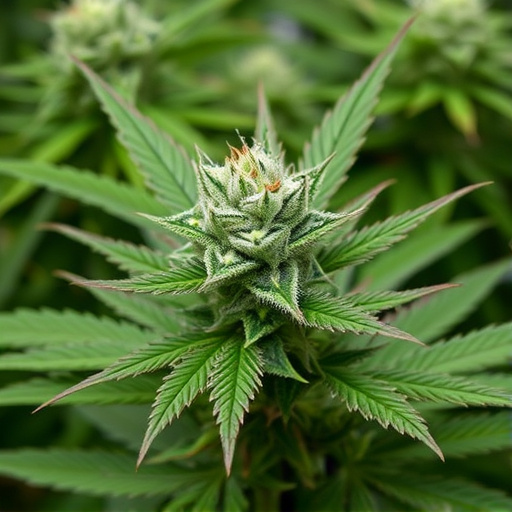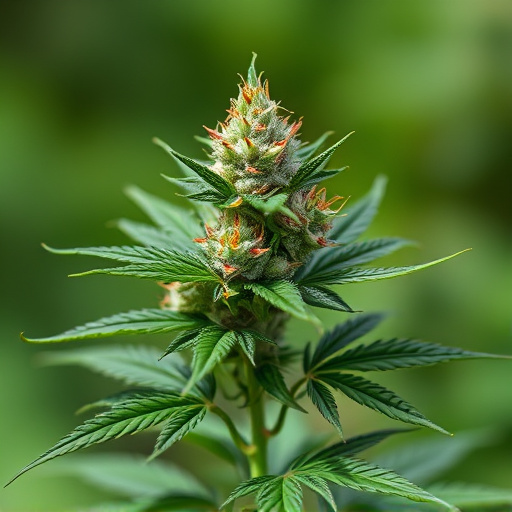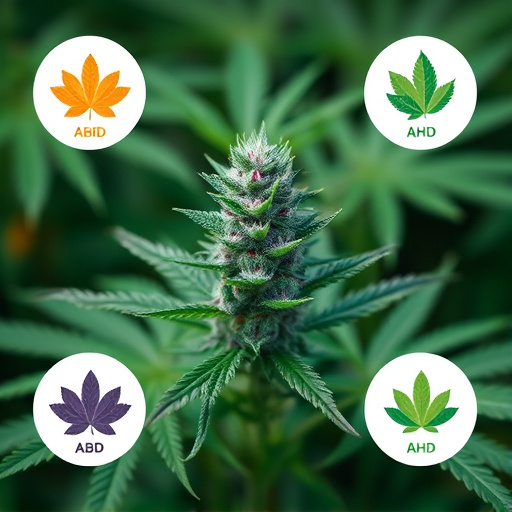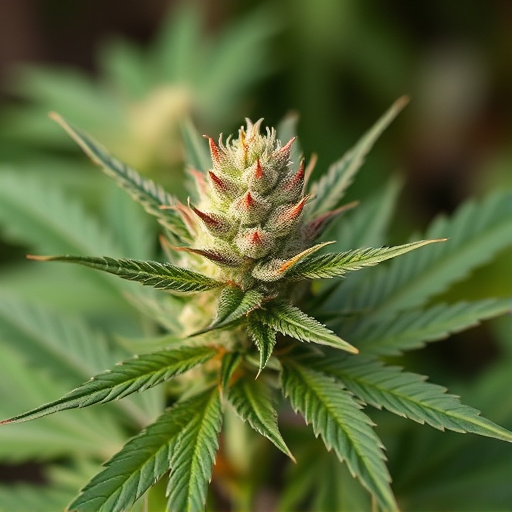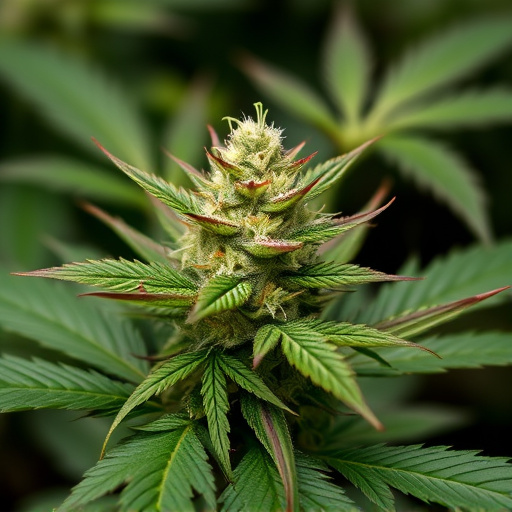Cannabis strains for ADHD vary greatly based on THC and CBD levels, with high-THC inducing euphoria but also anxiety, while low-THC/high-CBD offers potential symptom relief without psychoactive effects. Personal biology and genetics significantly influence cannabis interactions, leading to unique preferences among users with ADHD. High-CBD, low-THC strains show promise as a natural alternative treatment, targeting the endocannabinoid system involved in mood, memory, and attention regulation. Further research is needed to fully understand their efficacy and safe management.
Unraveling the factors that shape cannabis’s multifaceted effects is essential, especially with its growing acceptance. This article explores the intricate relationship between cannabis and the human body, focusing on two key aspects. First, we delve into the diverse effects of various cannabis strains, providing insights to help users make informed choices. Then, we examine the unique biological factors influencing individual experiences, including potential benefits for conditions like ADHD. By understanding these elements, individuals can navigate cannabis’s therapeutic potential more effectively, especially when considering specific strains for treating ADHD symptoms.
- Understanding Cannabis Strains and Their Varied Effects
- The Role of Individual Biology in Cannabis Experiences
- Exploring Cannabis as a Potential ADHD Treatment Option
Understanding Cannabis Strains and Their Varied Effects
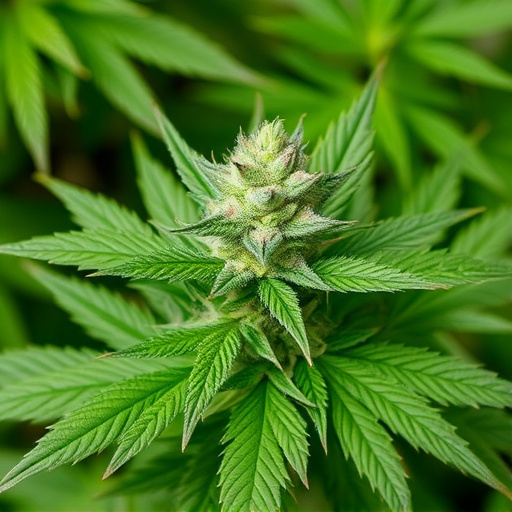
Cannabis has gained significant attention for its potential therapeutic effects, including on conditions like ADHD (Attention Deficit Hyperactivity Disorder). A crucial aspect to understanding cannabis’s impact is recognizing the diverse effects of different strains. Each strain possesses unique cannabinoid profiles, primarily THC (tetrahydrocannabinol) and CBD (cannabidiol), which dictate its physiological and psychological effects. For instance, while high-THC strains may induce euphoria and relaxation, they can also heighten anxiety in some individuals, making them less suitable for managing ADHD symptoms.
Conversely, CBD-rich strains are increasingly sought after for their potential to alleviate symptoms without the psychoactive effects of THC. These strains have shown promise in reducing impulsivity, improving focus, and mitigating hyperactivity, all of which are core aspects of ADHD management. Understanding these strain variations is essential when considering cannabis as a treatment option, allowing individuals to make informed decisions tailored to their specific needs and preferences.
The Role of Individual Biology in Cannabis Experiences
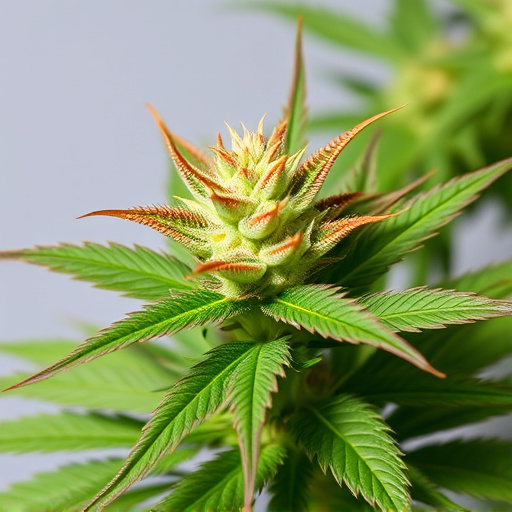
Every individual’s response to cannabis is unique, and understanding one’s biology is crucial in navigating their experiences with this plant. Genetic makeup plays a significant role in determining how someone might react to different cannabis strains. For instance, variations in genes involved in the endocannabinoid system (ECS) can influence sensitivity to cannabinoids like THC and CBD. Some people may have a higher tolerance due to specific genetic traits, while others might experience more pronounced effects, including those using cannabis strains for ADHD symptoms.
Biological factors also contribute to individual differences in desired effects. For individuals seeking relief from anxiety or insomnia, certain cannabis strains known for their high CBD content may be preferred. In contrast, users looking for a more energetic and creative boost might opt for hybrids with higher THC levels. These preferences are not universal but rather reflect the intricate interplay between biology, genetics, and personal experiences with cannabis.
Exploring Cannabis as a Potential ADHD Treatment Option

Cannabis has been increasingly recognized as a potential treatment option for Attention Deficit Hyperactivity Disorder (ADHD). While traditional medications like stimulants are commonly prescribed, cannabis strains known for their high CBD content and low THC levels have shown promise in managing ADHD symptoms. These particular strains can help improve focus, reduce impulsivity, and mitigate hyperactivity without causing the cognitive impairment or psychoactive effects associated with higher THC concentrations.
Research suggests that the endocannabinoid system, which is responsible for regulating mood, memory, and attention, plays a significant role in ADHD. Cannabis interacts with this system, offering a natural approach to balancing brain chemistry. As interest grows in alternative treatments, further studies are needed to fully understand the specific cannabis strains for ADHD and their efficacy, along with potential side effects, ensuring safe and effective management of symptoms for those struggling with this condition.
Cannabis has long been recognized for its diverse effects, which are influenced by both strain variations and individual biological factors. Understanding these dynamics is crucial, especially in exploring new potential treatments for conditions like ADHD. While cannabis strains for ADHD show promise, further research is needed to navigate the complex interplay between genetics, chemistry, and therapeutic applications. By delving into these areas, we can unlock personalized approaches that harness the power of cannabis while ensuring safe and effective treatment options.

